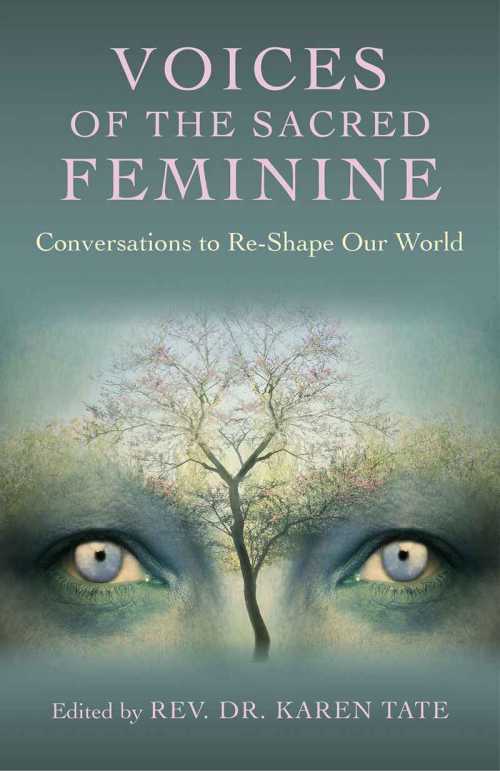“As I continue writing stories about people who are transforming religion and culture through including the Divine Feminine in sacred rituals, hope stirs within me. As I hear their visions for the future of the Divine Feminine, my vision expands.”
–Jann Aldredge-Clanton, Healing, Freedom, and Transformation through the Sacred Feminine.
“…monotheists have described the divine as ‘Father’ for over 2,000 years. Even if we neutered the God, to be labeled only an ‘It,’ we would still have the masculine echo ringing in our ears for another thousand years. So maybe it would make sense to call her the Goddess for a millennium or so, if only to even things out. Then perhaps we could move on to something more gender inclusive.”
–Tim Ward, Why Would a Man Search for the Goddess
“I don’t believe the Goddess is stupid or suicidal. I believe she evolved human beings for a purpose, to be her healing hands and loving heart. We may be growing into the job.”
–Starhawk, Earth, Spirit, and Action: Letting the Wildness In
Karen Tate is masterful at weaving together a diverse tapestry of voices on her weekly radio show, Voices of the Sacred Feminine. I wasn’t sure exactly what to expect from her new anthology by the same name, but Voices of the Sacred Feminine, the book, is a gorgeous tapestry as well. I was concerned it would consist only of interview style transcripts, and there are a couple of those (still interesting!), but most of the book consists of unique essays written by past guests on Karen’s show. The end result is essentially a textbook of feminist spirituality. As I read, I could easily imagine using this book as the foundation for a class on contemporary goddess spirituality.
Split into four broad thematic sections and one additional short memorial section, the book contains 41 essays from many leaders in their fields and produces a beautiful chorus of voices lifted together in celebration, information, and support of ecofeminism, the Goddess, and sacred feminine liberation thealogy. Addressing themes of sacred activism, sacred values, ritual and healing, and the Goddess as deity, archetype, and ideal, we hear from influential foremothers like Barbara Walker and Starhawk, scholars like Noam Chomsky and Riane Eisler, feminist thealogians like Charlene Spretnak and Shirley Ranck, practicing priestesses and clergy like Candace Kant, Patrick McCollum, Donna Henes, and Selena Fox. A number of the essays are by men, reminding us that Goddess has a significant place in the lives of many people and is not limited in gender-specific ways.
Karen’s gift in her radio program is in bringing people together to share their voices and her new book draws on this same strength. In a world that can sometimes feel fragmented, violent, apathetic, and distressing, the voices lifted in this book combine to offer an optimistic, hopeful, collaborative prayer for a just, care-based, earth-centered, cooperative way of living together.
